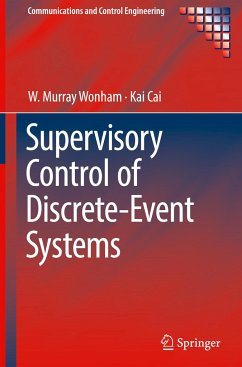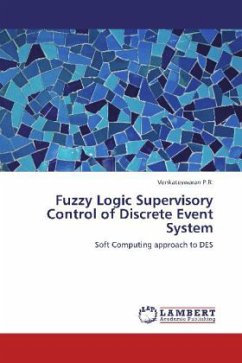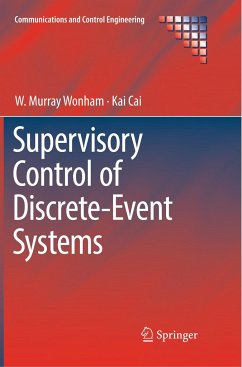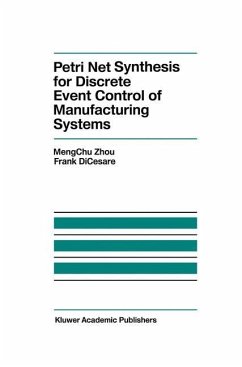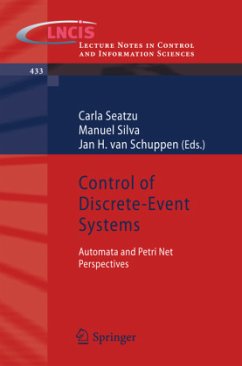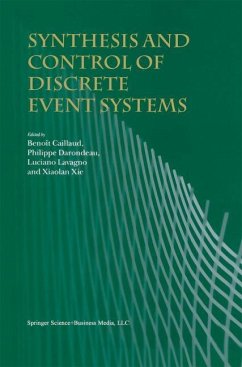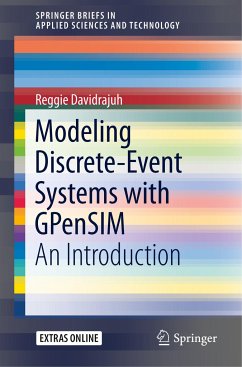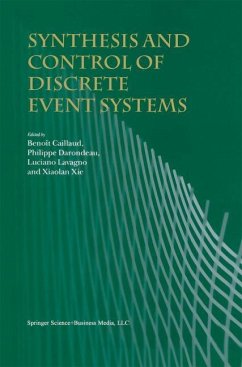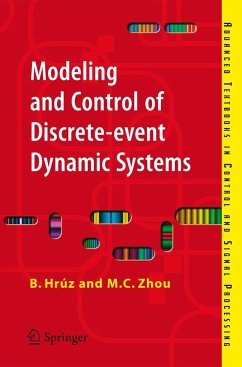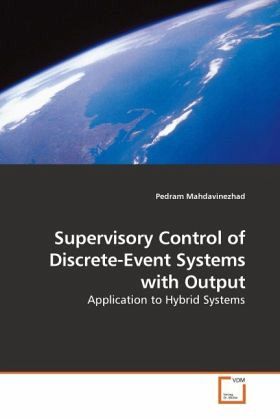
Supervisory Control of Discrete-Event Systems with Output
Application to Hybrid Systems
Versandkostenfrei!
Versandfertig in 6-10 Tagen
32,99 €
inkl. MwSt.

PAYBACK Punkte
16 °P sammeln!
In this book, the problem of supervisory control ofDiscrete-Event Systems (DES) with output is presentedand discussed at length. In such systems, causaloutput functions are employed to assign each sequenceof inputs with a corresponding sequence of outputs.When the specification of the desired behavior isgiven by a formal language over the output alphabet,necessary and sufficient conditions are derived forthe existence of nonblocking input as well asnonblocking output supervisory controls. An algorithmis presented to extend the results of nonblockinginput/output supervisory control from languag...
In this book, the problem of supervisory control of
Discrete-Event Systems (DES) with output is presented
and discussed at length. In such systems, causal
output functions are employed to assign each sequence
of inputs with a corresponding sequence of outputs.
When the specification of the desired behavior is
given by a formal language over the output alphabet,
necessary and sufficient conditions are derived for
the existence of nonblocking input as well as
nonblocking output supervisory controls. An algorithm
is presented to extend the results of nonblocking
input/output supervisory control from language-based
framework into nite automata framework, making the
proposed results applicable to large scale
discrete-event systems. The idea of siblings is
introduced to solve the problem of nondeterminism in
discrete-event abstractions of hybrid systems, giving
rise to the development of a theory for nonblocking
supervisory controlof hybrid systems. Our results
enable one to apply classical supervisory control
theory to design supervisors for DES approximations
of hybrid systems, and should be useful for
professionals and researchers in Hybrid and control
systems
Discrete-Event Systems (DES) with output is presented
and discussed at length. In such systems, causal
output functions are employed to assign each sequence
of inputs with a corresponding sequence of outputs.
When the specification of the desired behavior is
given by a formal language over the output alphabet,
necessary and sufficient conditions are derived for
the existence of nonblocking input as well as
nonblocking output supervisory controls. An algorithm
is presented to extend the results of nonblocking
input/output supervisory control from language-based
framework into nite automata framework, making the
proposed results applicable to large scale
discrete-event systems. The idea of siblings is
introduced to solve the problem of nondeterminism in
discrete-event abstractions of hybrid systems, giving
rise to the development of a theory for nonblocking
supervisory controlof hybrid systems. Our results
enable one to apply classical supervisory control
theory to design supervisors for DES approximations
of hybrid systems, and should be useful for
professionals and researchers in Hybrid and control
systems



